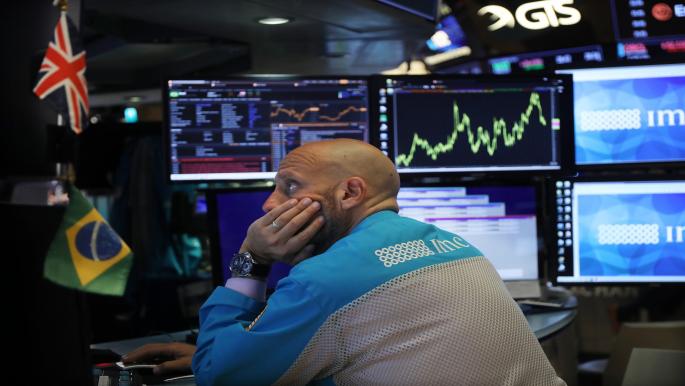The new president of the World Economic Forum, Borge Brende, has warned that the world is facing the most complex geopolitical situation in decades. In an interview with AFP ahead of a forum meeting in Tianjin, northern China, he described the current geopolitical and geo-economic context as the most complicated witnessed in decades. He cautioned that without revitalizing growth, the world might experience a decade of the weakest growth seen in years. This week, political leaders and economic players from around the globe are participating in the World Economic Forum in Tianjin.
The event, also known as the “Summer Davos Forum,” is taking place amid ongoing tensions between Iran and the United States, and after months of trade escalation between Beijing and Washington due to increased tariffs initiated by former US President Donald Trump. Brende noted that it is still “too early” to fully assess the impact of the trade war launched by Trump against both US trade partners and competitors. He added that negotiations are still ongoing, making it premature to predict the outcomes of these tariffs.
Brende highlighted that globalization as we knew it has evolved into a different system, marking the beginning of a new chapter where trade was once the engine of growth. He also warned of the “extremely negative” consequences of ongoing armed conflicts on the global economy. China, the host of this year’s forum, faces significant uncertainty as the world’s second-largest economy grapples with a prolonged real estate crisis and weak domestic consumption. Brende emphasized China’s importance, predicting it will account for about 30% of global growth by 2025.
He explained that China is increasingly focusing on digital trade and services while opening up to a growing domestic consumer base, which is crucial. Since last year, China’s ruling Communist Party has introduced measures to stimulate domestic consumption, including interest rate cuts and easing restrictions on home purchases. However, many economists doubt China’s ability to meet its official growth target of “around 5%” for the current year. Beijing is betting heavily on new technologies and artificial intelligence to drive future growth.
Brende suggested that while trade has traditionally driven growth, new technologies, including AI, could potentially replace the significant role that trade once played. Although trade remains “very important,” he believes technology can provide the necessary productivity boost to avoid a decade of sluggish growth. Several conferences and meetings are being held this week alongside the forum at Tianjin’s massive convention center, with notable appearances, including former UK Prime Minister Tony Blair. Chinese Premier Li Qiang is set to deliver the opening speech on Wednesday.
— news from (العربي الجديد)
— News Original —
رئيس دافوس يحذر من أضعف نمو اقتصادي عرفه العالم منذ عقود
أكد الرئيس الجديد للمنتدى الاقتصادي العالمي بورغه برنده أن العالم يواجه اليوم وضعا جيوسياسيا هو “الأكثر تعقيدا” منذ عقود. وقال في مقابلة أجرتها معه وكالة فرانس برس قبل انعقاد اجتماع للمنتدى في مدينة تيانجين بشمال الصين إن “هذا هو السياق الجيوسياسي والجيواقتصادي الأكثر تعقيدا الذي نشهده منذ عقود”. وحذر من أنه “إذا لم نتوصل إلى إنعاش النمو، فقد نشهد للأسف عقدا من أضعف نمو عرفناه”. ويشارك عدد من المسؤولين السياسيين واللاعبين الاقتصاديين من كل أنحاء العالم في المنتدى الاقتصادي العالمي المنعقد هذا الأسبوع في تيانجين.
ويعقد هذا المنتدى المعروف أيضا باسم “منتدى دافوس الصيفي”، في إشارة إلى المنتدى السنوي الشهير في جبال الألب السويسرية، وسط النزاع بين إيران وإسرائيل والولايات المتحدة، وبعد أشهر من تصعيد تجاري بين بكين وواشنطن على وقع رسوم جمركية مشددة متبادلة بادر الرئيس الأميركي دونالد ترامب إلى فرضها. ورأى برنده الثلاثاء أن الوقت ما زال “مبكرا جدا” لتقييم التداعيات الكاملة للحرب التجارية التي شنّها ترامب على شركاء بلاده التجاريين ومنافسيها على السواء. وقال: “من المبكر جدا توقع نتائج هذه الرسوم الجمركية، فالمفاوضات لا تزال جارية”.
واعتبر أنّ “العولمة كما عرفناها تطوّرت الآن إلى نظام مختلف”، لافتا إلى أن “فصلا جديدا يبدأ… لا سيما أن التجارة كانت محرك النمو”. كما حذر من التبعات “السلبية للغاية” للنزاعات المسلحة الجارية حاليا على الاقتصاد العالمي. وتستضيف الصين المنتدى الاقتصادي العالمي في ظل ضبابية كبيرة تحيط بوضع ثاني أكبر اقتصاد في العالم الذي يعاني أوضاعا صعبة جراء أزمة عقارية مستمرة منذ فترة طويلة واستهلاك داخلي ضعيف. وقال برنده إن “الصين لها وزنها حقا”، متوقع أن تمثل حوالى 30% من النمو العالمي عام 2025.
وأوضح برنده أن “الصين توجه اقتصادها أكثر إلى التجارة الرقمية والخدمات وتنفتح الآن على استهلاك داخلي متنامٍ، وهو أمر مهم”. وكشف الحزب الشيوعي الحاكم في الصين منذ العام الماضي سلسلة تدابير تهدف إلى تحفيز الاستهلاك الداخلي، ولا سيما من خلال تخفيضات لمعدلات الفائدة الرئيسية وإلغاء بعض القيود على شراء مساكن. لكن العديد من خبراء الاقتصاد يشككون في قدرة الاقتصاد الصيني على تحقيق الهدف الرسمي للنمو البالغ “حوالى 5%” للعام الحالي. وتراهن بكين بصورة خاصة على التكنولوجيات الجديدة والذكاء الاصطناعي لتحفيز النمو مستقبلا.
وقال الرئيس الجديد للمنتدى الاقتصادي العالمي: “كانت التجارة في الماضي محرك النمو، لكن لا يمكن استبعاد أن تتمكن التكنولوجيات الجديدة بما فيها الذكاء الاصطناعي… من الحلول ربما محل الدور المهم الذي كانت تؤديه التجارة”. ورغم أن التجارة لا تزال “مهمة جدا”، قال إن التكنولوجيات يمكن أن تعطي دفعة الإنتاجية الضرورية “لتفادي عقد من النمو المتعثر”. وتعقد هذا الاسبوع على هامش المنتدى عدة مؤتمرات واجتماعات في مركز المؤتمرات الضخم في تيانجين، بحضور ملحوظ الثلاثاء لرئيس الوزراء البريطاني السابق توني بلير. ويلقي رئيس الوزراء الصيني لي تشيانغ الأربعاء الكلمة الافتتاحية للمؤتمر.
(فرانس برس)
